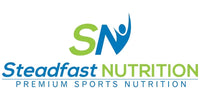
When it comes to weight loss, it is always recommended to have a high-protein diet, as it offers satiety. A meal rich in protein is known to keep us full for long hours, even if the calorie intake is less.
This attribute of protein for keeping us satiated for long is because of an activating hormone - leptin. The release of this hormone in our body sends signals to our brain causing a satiety effect on us. Therefore, when we consume a protein-rich food, it results in the secretion of appetite regulating hormone - leptin which signals our body and inhibits hunger. It has been observed that our appetite is regulated by a number of hormones like ghrelin which is called as the hunger hormone; cholecystokinin, glucagon-like peptide-1 and peptide YY are responsible for indicating satiety.
A study published in Journal of the Academy of Nutrition and Dietetics, analysed the effects of increased protein intake on fullness. Subjects were given dietary protein and not supplements. Their fullness levels were measured after 2 to 4 hours of the test meal given. The outcome revealed that subjects who consumed high protein had fullness for longer duration as compared to lower protein preloads.
It was also stated that high protein intake may also contribute in improving the quality of life overall by preventing unwanted food cravings and bingeing on junk foods. Long term habit of a protein rich diet aids in maintaining a healthy weight and specifically good for people who have frequent food desires.
Similarly, another study mentioned in British Nutrition Journal supported the claim after conducting a study on 20 healthy women. Appetite control and satiety levels were determined post consumption of high-protein yogurt, high-fat crackers and high-fat chocolate as evening snack on different days. It was found that as compared to high-fat snacks, high-protein yogurt worked better in controlling appetite, providing satiety and reducing hunger. Additionally, calorie consumption during dinner was minimum when high-protein yogurt was consumed in the evening.
Apart from providing fullness, high protein intake also suppresses appetite by increasing the levels of two gut hormones - peptide tyrosine tyrosine (PYY) and glucagon-like peptide 1 (GLP-1). Elevated levels of these hormones has been linked with reduced food intake. This phenomenon might be the explanation for reporting decreased hunger among people, who undergo gastric bypass surgery. Post operative, these patients often exhibit elevated levels of peptide tyrosine tyrosine (PYY) and glucagon-like peptide 1 (GLP-1) hormones which leads to the suppression of appetite.
Some researchers have different concepts behind protein intake and fullness. Portal vein is the major blood vessel which accounts for drawing blood into our gut. It has been seen that portal vein nerves has certain mu-opioid receptors (MORs) on it which modulates the food we eat. When these receptors get activated, they make us feel eat more. Scientists say that on consuming a protein rich meal, peptide chains block these MORs which curb the appetite. In addition, they also stimulate intestinal gluconeogenesis in which glucose or energy is produced by the breakdown of dietary protein consumed.
To summarise, proteins are effective in keeping us satiated for long by causing multiple physiological changes in the body. They suppresses our appetite by causing alterations in the levels of hunger and satiety hormones. Therefore, including protein rich foods like low fat milk and milk products, eggs, seafood, pulses, legumes, chicken and meat is a good way to keep a check on overall calorie intake and maintain a healthy weight. Protein rich diets prevents muscle loss and provides proteins for other necessary functions as well like immunity, enzyme and hormone synthesis, transport and storage of nutrients.
REFERENCES
Dhillon. Jaapna, Craig. Bruce, et. al,(2016) The Effects of Increased Protein Intake on Fullness. Journal of the academy of nutrition and dietetics. Referred from https://jandonline.org/
Increased protein consumption linked to feelings of fullness (2016) ScienceDaily. Referred from www.sciencedaily.com/
Dhillon. Jaapna, Craig. Bruce, et. al (2016)The Effects of Increased Protein Intake on Fullness, ResearchGate. Referred from www.researchgate.net/
Dhillon. Jaapna, Craig. Bruce, et. al (2016)The Effects of Increased Protein Intake on Fullness, Eatright. Referred from www.essentialnutrition.com
Ortinau. Laura C, Hoertel. A Heather, et.al, (2014) Effects of high-protein vs. high- fat snacks on appetite control, satiety, and eating initiation in healthy women. Nutrition Journal. Referred from https://nutritionj.biomedcentral.com/
De Silva. Akila, R.Bloom. Stephan, (2012)Gut Hormones and Appetite Control, Gut Liver. Referred from www.ncbi.nlm.nih.gov/
Duraffourd. Celine, De Vadder. Filipe, et. al(2012) Mu-Opioid Receptors and Dietary Protein Stimulate a Gut-Brain Neural Circuitry Limiting Food Intake, ScienceDirect. Referred from www.sciencedirect.com/






